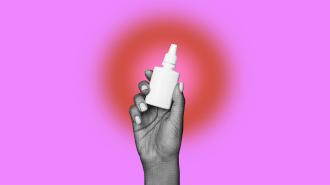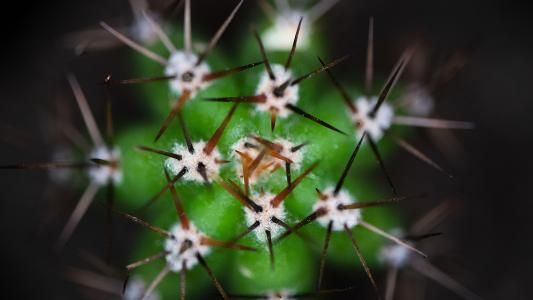A low-cost, easy-to-use nasal spray co-developed by University of Oxford researchers reduced the risk of COVID-19 infection by 62% in a clinical trial.
“[The spray] presents a significant breakthrough in preventing people developing COVID-19,” said researcher Rakesh Uppal, director of Barts Life Sciences.
The nasal spray: The spray, called pHOXWELL, is simple to use — just two sprays up each nostril provides 6 to 8 hours of protection against COVID-19 and other airborne respiratory viruses.
It works by preventing viruses from infecting the tissues that line the nasal cavity, thereby blocking the coronavirus’ primary entry way into the body. This is different from a vaccine, which preps the immune system to attack a specific virus (and also lasts longer).
During the trial, 556 unvaccinated healthcare workers, with no prior COVID-19 infections, used the nasal spray or a placebo three times a day for 45 days. No serious adverse effects were reported in either group.
“We now have an effective tool, previously missing, to fight this virus.”
Rakesh Uppal
When the participants were tested for COVID-19 antibodies — which indicate that they’d been infected, even if they never developed symptoms — 34.5% in the placebo group had been infected, compared to just 13.1% of people in the treatment group
This suggests the nasal spray reduced the risk of infection by 62%.
“We now have an effective tool, previously missing, to fight this virus, and is designed to offer extra protection against COVID-19, in addition to vaccines, face masks, and washing our hands,” said Uppal.
Powerful weapon: The clinical trial was carried out in India from April to July 2021, when the Delta variant was dominant, and the Omicron variant is now responsible for most infections.
However, because Omicron’s mechanism for getting into the body is the same as Delta’s, the researchers believe their nasal spray would be equally effective against it and any future variants (though they note in their paper that studies are needed to confirm that assumption).
“We’ve tested it against all the viruses of concern, all the mutations of concern, and it has equal efficacy…”
Rakesh Uppal
“For the virus to enter the cell, it needs to undergo certain very specific chemical reactions,” Uppal explained in November 2021. “We’ve been able to find a way to manipulate that chemical reaction, and therefore stop the virus from entering.”
“We’ve tested it against all the viruses of concern, all the mutations of concern, and it has equal efficacy because it’s a chemically-based solution,” he added.
This universality gives the nasal spray an advantage over our available vaccines, which aren’t nearly as effective against the new variants as the original strain of COVID-19.
Looking ahead: The researchers are now applying for regulatory approval to begin producing and distributing pHOXWELL in India, with the goal of expanding to other nations in the future.
They note that the nasal spray is inexpensive, simple to produce, and easy to store, which could make it particularly beneficial in low-income nations, where only 20% of people have received at least one dose of a vaccine — compared to 72% in high-income nations.
We’d love to hear from you! If you have a comment about this article or if you have a tip for a future Freethink story, please email us at [email protected].






